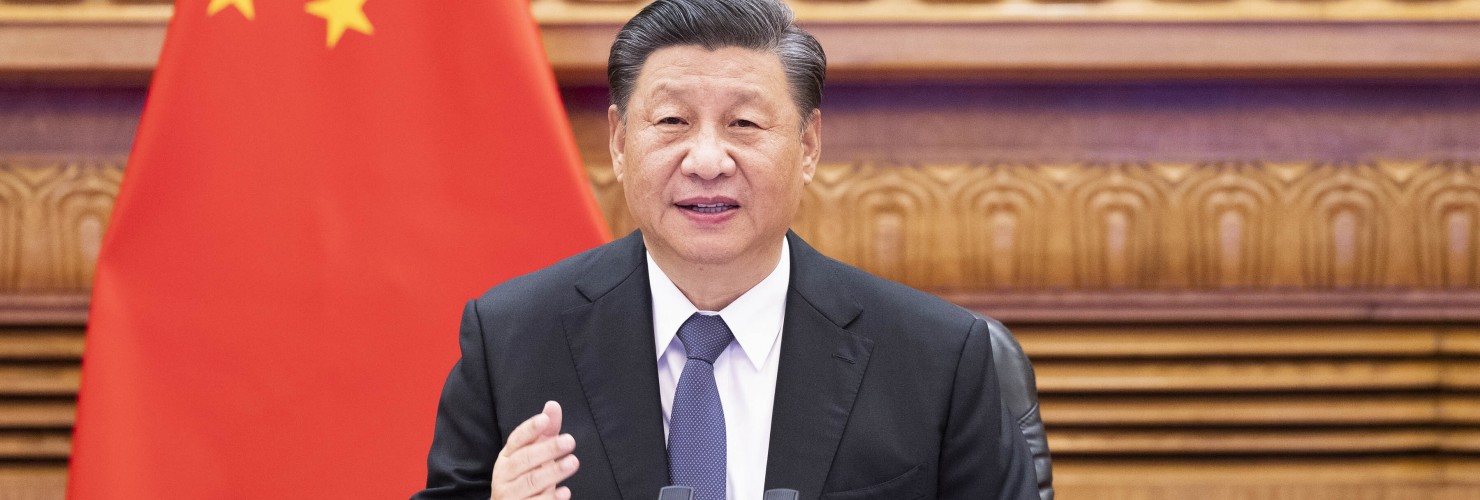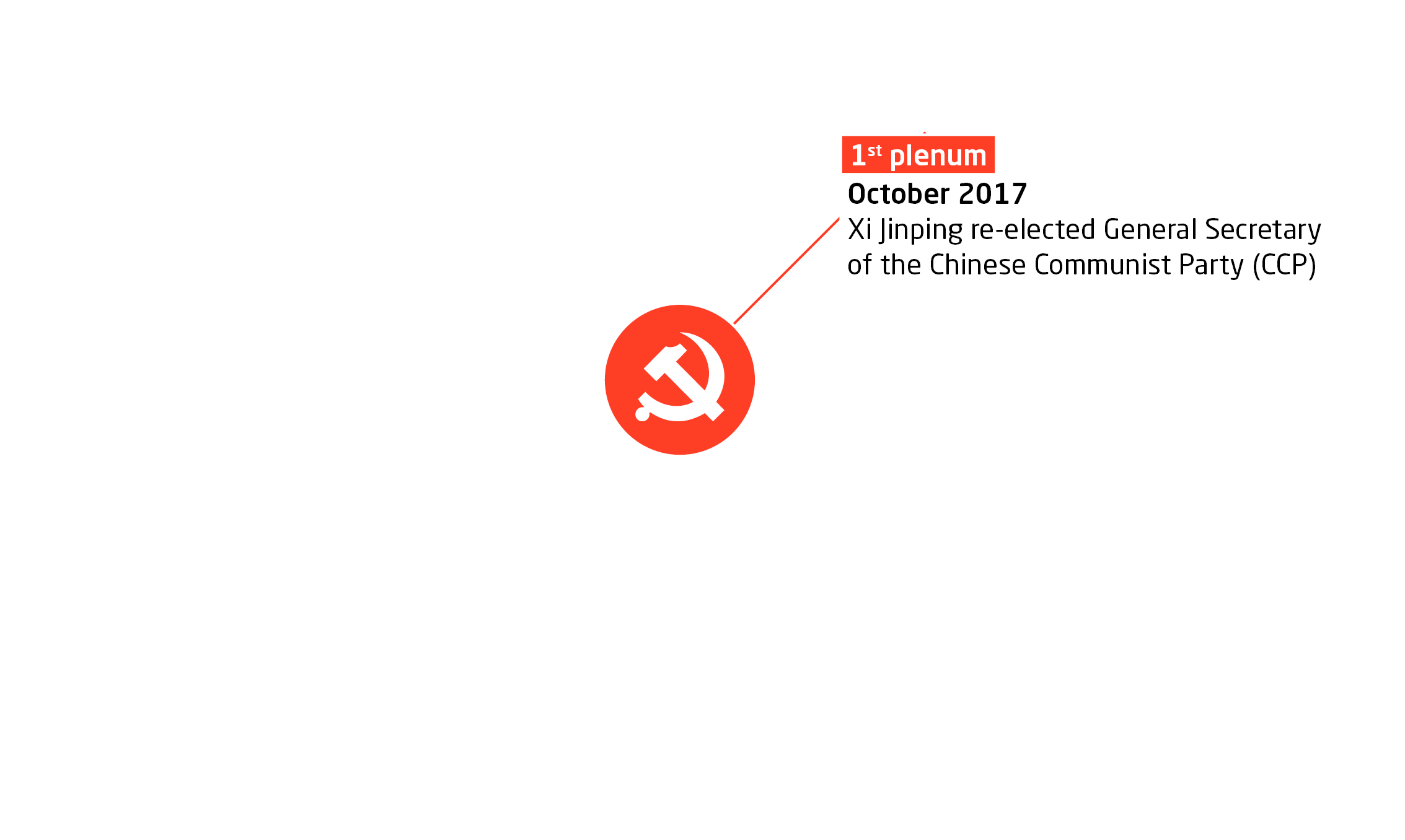Valarie Tan

As the CCP's 19th Central Committee meets at its sixth plenum in Beijing, all eyes are on party chief and China’s president Xi Jinping to see how he influences the wording of the "Resolution on History". MERICS analyst Valarie Tan explains the role this key document plays and what the wording means for the future of the party and Xi himself.
First, Mao Zedong in 1945. Then, Deng Xiaoping in 1981. Now, at the sixth plenum taking place currently in Beijing, Xi Jinping is expected to become the third leader in China to preside over a “Resolution on History” (历史决议) of the Chinese Communist Party (CCP). Held over three days, behind closed doors, the sixth plenum of the 19th Central Committee is the last major political gathering for the CCP’s Central Committee – the bastion of China’s most powerful current and future leaders – before a reshuffle of positions next year.
In contrast to what the name suggests, the “Resolution on History” is not an exposition of facts in party history. Rather, it is a propaganda document that contains interpretations of events in the CCP’s past, carefully selected to serve a political agenda. Meticulously worded and politically charged, it is a powerful document that determines the official narrative of party history and is to be used as an ideological guide for policies in the future. Apart from being drafted and passed at historical milestones, the document plays an important role in solidifying the authority of the leader in power at the time – as was clear in the two previous resolutions.
Xi's rule of the party is coming full circle: Plenums of the 19th Central Committee

Historic resolutions on history
Orchestrated by Mao, the first resolution was issued at the CCP’s wartime headquarters in Yan’an. It made a formal break from his rivals, established Mao Thought as the main guiding ideology, and consolidated his paramount leadership in the party.
The second, passed by Deng, marked the end of the Mao era. It decried the mistakes in the Cultural Revolution just as millions of urban youths were returning to the cities after being forced to work and live in the countryside. But Deng retained Mao Thought as the guiding ideology in the document in order to unite quarrelling factions in the party. Deng’s dominance in dictating and revising the resolution consolidated his authority and set the foundation for his pragmatic policies, including that of “Reform and opening-up”, which eventually led to China’s economic success.
Setting the future agenda
As with the previous two resolutions, the new document will no doubt reinforce Xi’s legitimacy and core position in the party. More importantly, it will elevate Xi’s status as a leader to the level of Mao’s and Deng’s. According to the party mouthpiece, People’s Daily, while leaders from Mao Zedong to Hu Jintao have made tremendous contributions, Xi has been the key driver of the party’s success and “active spiritual force” (主动的精神力量) in the last decade. Staples such as “the great rejuvenation of the Chinese nation” and the “China Dream” will most definitely make an appearance in the resolution.
Set to cover “the major achievements and historical experience of the party’s 100 years of endeavors”, according to Chinese party-state media Xinhua, the document’s draft has been circulated to both party and non-party representatives and their feedback will be included in the final revisions. One word that does not appear in the title of the new resolution but was present in both of the last two documents is the word “questions”, suggesting that Xi’s focus is more on the party’s success, and less on its failures and mistakes of the past.
Challenges still to be overcome
The push for positive optics would be timely for the party as it battles challenges on several fronts at home. Economic growth has slowed. An energy crisis has resulted in blackouts and forced factories and households to ration electricity. Close to the brink of bankruptcy, the country’s second largest property developer, Evergrande, is only the first in a string of heavily indebted firms struggling to repay millions of dollars in debts. The regulatory crackdown on the country’s digital and private tutoring sector has led to losses, bankruptcies and layoffs. Strict quarantines and lockdowns of millions in numerous cities have failed to completely stamp out the local transmission of Covid-19 infections.
Ahead of the 20th Party Congress, due in autumn next year, the period before a leadership transition in the CCP is always politically sensitive with rumors of in-party fighting and factional strife. The resolution would therefore represent an endorsement and theoretical framework to project confidence and party unity and lay the groundwork for Xi to seek a third term next year as the CCP’s General Secretary – something he is now entitled to do having abolished the two-term limit put in place by Deng to prevent another Maoist dictatorship.
In other words, just as Deng used the resolution in 1981 to wrap up Mao’s rule, Xi is doing the same with Deng. The new official document on party history thus categorically closes the chapter on Deng and sets in motion the “new era” of China under Xi Jinping rule.
No comments:
Post a Comment